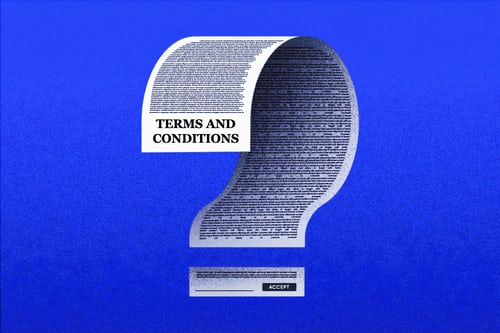FOR THE LAST SEVERAL WEEKS we’ve been looking at steps we can take to complete our grief healing. Specifically, we’ve been exploring what is known as the relationship review, when you reminisce about events and seasons of life with the person you’ve lost. Or the pet, Or the job, or the spouse, or the community.
Today we’re going to delve deeper into that review and find out how it helps us complete our grieving.

Beginning your relationship review—Step 1
“All relationships begin at the beginning, but that does not mean that all relationships begin at the first meeting” (Grief Recovery Institute).
I remember when I first met my husband. It was a brief, perfunctory howdy do, welcome to college and nice to meet you kind of greeting. I shook his sweaty frightened-freshman hand and that—as far as I could foresee—was the end of it. Never in my wildest dreams did I think a mutual friend had just introduced me to my future husband.
That was our first meeting. And it was not the beginning of our “relationship.” That would come over a year later, when we started palling around with the same people, and then out of the blue he asked me if I would be his homecoming date. Even that invitation was a shock to me. I’d never suspected what his true feelings were.
That’s just one example of a relationship starting after a first meeting. But what about the relationship that begins even before an actual meeting takes place?
So many are finding their true loves through dating sites nowadays, that marriage relationships now often begin prior to the first meeting.
There’s a lot of energy expended on perusing dating sites, finding the one best for you. Filling out forms. Submitting them. Waiting for that special someone to connect with you.
Or maybe it’s preparing for a blind date that eventually moves into love, marriage, kids, and growing old together. With both this and the dating site scenario, there’s history accumulating before you even lay eyes on one another.
And that’s where the relationship review can start, the before the actual first meeting. From there you can move on to how you felt and what happened when that first meeting occurred, when you knew he was THE ONE.
Even in the grief, the memories of that first moment can be so profound that warmed hearts produce smiles and maybe some laughter. Maybe there are negative events that now produce laughter. Whatever emotion is rekindled, that’s fine. Go with it. It’s part of the review.
Because your primary goal is to express any kind of feelings (positive, negative, indifferent) you can connect to your relationship with that person.
What kind of activities bonded you together? How did you feel about that person in the early stages of the relationship? At every stage? Explore and discover anything about the relationship that produces feelings.
Elaborate memories. Simple memories. Silly memories. Long-forgotten memories.

Step 2: Relationship review terms to Use—
All losses will create energy expressed in emotions. All losses will cause you to review the relationship that ended or changed. Some memories trigger happy events; some memories unleash sad ones.
Don’t fear using any term you can think of to describe the relationship or the memory associated with it. A memory might make you feel excited or joyful. A memory might evoke fright, as in the memory of receiving the cancer diagnosis or undergoing the first round of chemo. The moment you learned of the accident, or received the phone call.
The memory might evoke stress, worry, or satisfaction.
Whatever emotional response you have, don’t dismiss it. Note it as an honest reaction to a memory, an emotion that needs expression.

Using the emotional energy checklist—
All of your memories might not come at the same time. Some might come sooner and others later. An emotional energy checklist can help trigger important memories that produce positive and negative emotional memories. But always make sure you explore the emotions revolving around memories you’re comfortable reminiscing about.
Do not be in a hurry. Find your own emotional pace. Give yourself freedom to unearth and discover some of these emotions.
If you think it might be helpful, find a supportive family member or friend who could help you reminisce and give you the freedom to express yourself.

Areas to explore and discover—
This is certainly not an exhaustive list, but you can use it to trigger other questions and memories.
Start at the beginning of any relationship—how did it start? How did it progress? How did you initially feel? Were there any especially memorable events that trigger strong emotions?
- Early joys? Early frustrations. Doubts. Concerns.
- Early memorable dates and friends connected with you.
- How did the love or bond develop? What stymied it?
- Meeting the in-laws, siblings, friends.
- How did the proposal happen?
- Planning for the wedding. The wedding itself.
- Children. When and how did you decide to have them, or not plan?
- Were there any illnesses or accidents you had to contend with, in you, your spouse, your children? What are the memories surrounding those?
- Moving, buying your first house. Your first car. Your first job. Changing jobs. Losing a job.
- Pets you had. How they affected your life and relationship.
- Difficult times or periods of your life or marriage.
- What happened to bring life to an end?
- What was the diagnosis? The process. Decisions made?
- Last day emotions?
- Events surrounding the final and last days?
- What you’ll miss the most?
- Depth of love. Best things you loved about your spouse. Things that brought you irritation or frustration.
- What regrets do you have?
- What things did you do in the relationship that you wanted to ask forgiveness for but didn’t?
- What things do you wish your spouse had apologized for?
- What things did you withhold from them that you regret keeping secret?
These are only just a sampling of discovery questions. Just reading them probably triggers others for you.

Using Emotional Energy to Promote Grief Recovery—
Before we delve in here, let’s review the definition of Completion:
“Completion is the action of discovering and communicating, directly or indirectly, the undelivered emotions that attach to any relationship that changes or ends.” —Grief Recovery Institute
The relationship review is simply the discovery component. Once you’ve discovered, then you can use your discoveries to determine what about the relationship you wish was different, better and more.
You’ll think about unrealized hopes and dreams and unfulfilled expectations. You’ll have emotions about what you wish you had done differently, what the other person had done differently; what you or the other person hadn’t said.
But it can’t end there.
There is one more critical step on your journey to feeling emotionally complete or restored. And it starts by categorizing those emotions, desires, regrets and memories under four different headings.
- Apologies
- Forgiveness
- Significant Emotional Statements
- Fond Memories
And we’ll use these categories to communicate a previously undelivered emotional comment.
The foundation of these categories is to answer the basic question:
If you could have your loved one with you again, what would you want to say to them?
Since the loved one is not around to hear them, it’s clear that discovering and saying these things will be for your emotional benefit.
When we’ve finally compiled our list, we’ll write a letter to our loved one that contains all these components. And then we’ll audibly express them.
That will be our relationship review letter—the important step to completion.
On my next post, we’ll dig further into these four important components. So I’ll see you back here then!

Invitation—
- If you’ve recently suffered any kind of loss, I invite you to go through your own relationship review and start jotting down emotional responses to it. Did you lose your job? Explore every emotional aspect of it.
- Are you grieving the loss of meeting with your church family, attending Bible studies in person, feeling isolated and depressed because you can’t gather with others to worship? If so, jot down those emotions.
- If you suffered a loss years ago and realize you didn’t really complete your emotional healing from it, mentally return to that time and discover the emotions attached to the relationship. You may be surprised at what surfaces.
NEXT WEEK, I’ll be on holiday with my beloved; having our State of the Marriage and Family retreat we take yearly around our anniversary. I’m excited to see you back here September 21!
Until then, take the time to explore and discover as you go through your emotional energy checklist.
Blessings,
Andrea
“Beloved, I pray that you prosper in all things and be in health, just as your soul prospers” (3 John).
Andrea Arthur Owan, M.S., A.T., R., is a fitness pro, award-winning inspirational writer, memoirist, and senior-ordained chaplain (IFOC). She mentors people in how to thrive physically, emotionally, and spiritually, and recover from grief, loss and trauma.
